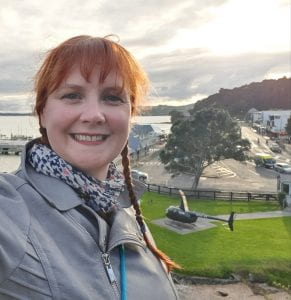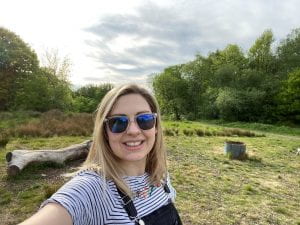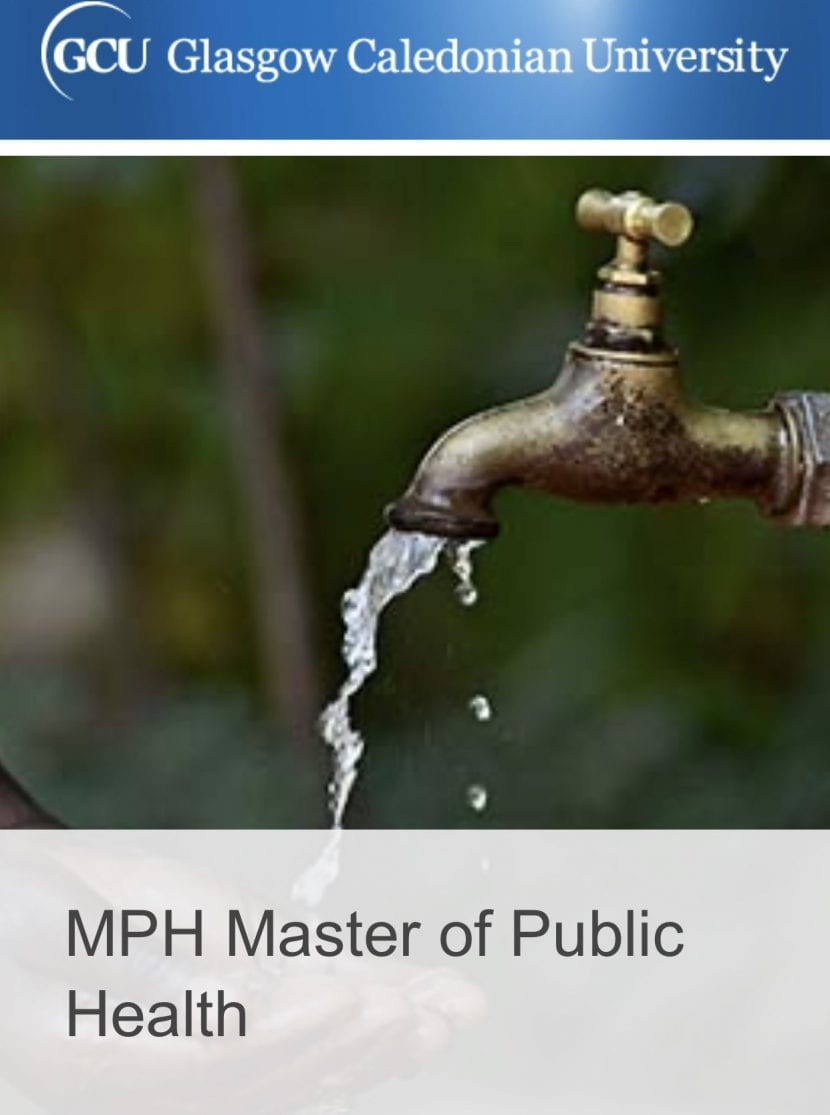This week’s piece provides insights into students’ experiences of a Masters module led by researchers from the SHIP team.
The Infection Prevention and Control in a Global Context (IPCGC) module is offered to students in Trimester B of the Masters of Public Health (MPH) programme at Glasgow Caledonian University. Students are given the choice of three modules in Trimester B and the one with most student votes is the one that runs. The IPCGC module has been chosen for the last two years. It is always important to get feedback from students about modules but sometimes it is even more meaningful to hear their stories -what were their expectations, their experiences and how will they use this experience in the future. To this end we asked students who took the module in Trimester B 2020 to share their experiences and this is what they said:
Student 1: Diane Delaney
“The majority of the class voted for the IPC module, I did not. I studied nursing at GCU approximately 20 years ago, however the majority of my career has been in Social Care. Although my nursing skills and knowledge were utilised and relevant throughout my employment, I was not working in a clinical environment and therefore my knowledge, skills and interest in areas such as IPC faded away.
My expectations of the IPC module were not great – I didn’t expect to enjoy it and I thought it would be a significant challenge for me in terms of my knowledge base. To my surprise, I found myself thoroughly enjoying this module from the first class. It was a significant benefit that the course was extremely well structured. This included a new topic being introduced each week, the first hour of the class involved group discussion on the previous week’s topic where students were set homework to investigate a specific area relating to IPC, to research it and feedback to fellow students. The remaining hour of the class incorporated learning about a new area of IPC.

Although I was initially apprehensive during the first and second weeks about the one-hour group discussion sessions, as each week passed it was clear that this was undeniably the best part of the class. Significant learning occurred as a result of a group of five or six students sharing our personal and professional knowledge and experience, alongside whatever evidence we had found from the research that week. The outcome for me was a renewed fondness of the study of IPC, a remarkable increase in knowledge (as reflected in my exam results!) and an understanding of the importance of IPC in a Global context for everyone. The timing of this course with the current pandemic was slightly ironic, but I am so thankful to have been a part of the IPC class of 2020”.
Student 2: Eseoghene Oluwaseun Johnson
“Starting the IPCGC module was very exciting for me. I have always been fascinated about the field of public health and had particular interest in infection spread and control. Coming from a country like Nigeria where there is wide spread of tropical diseases; blood borne viruses (BBVs) and communicable diseases, it was of particular interest to understand the public health perspective and what is done in countries like the United Kingdom to tackle the spread of these diseases and infections.

My first day in the IPCGC class was the best day of my MPH study so far and I knew this was going to be my most enjoyable module. I especially loved the mode of delivery and how much information we were being taught in so little time. I enjoyed coming to class each week and never wanted the classes to end because I learned so much and enjoyed the small group discussions between classmates where we all shared experiences of IPC strategies in our different countries and professional experiences. I most especially enjoyed the BBV segment of our learning and I chose to focus my assignment on HIV spread and control in Nigeria. One aspect of this module which I had not experienced in other modules was the discipline around the learning experience. I remember the discussion about how to coordinate ourselves during classes, advising us to be on time for class as this will benefit everyone. The module also incorporated sessions delivered by professionals working in IPC centred research projects and employment, giving us an understanding of how to translate what we learnt in class to the professional world.
My future career focus in Public Health is going to be in BBVs and Infection control and I am happy I have completed this module because it has launched me into my public health career. Also, I will be taking the lessons learned from this module into my dissertation which will be a further exploration of my IPC module assessment essay”.
Student 3: Sophie Richardson

“In my undergraduate podiatry degree, I had learned about the different types of organisms and infections that we could face and all about the appropriate preventative measures. Because of this, I wasn’t sure what to expect when I started the IPCGC module, but certainly, the learning material in the module really brought something extra to the table! I was pleased with the diversity in topics and to be learning about things like outbreak management and behaviour change as these hadn’t been included in my previous degree.
The structure of the module was another bonus, with the weekly tutorials and lectures followed by tasks to be completed at home each week. This made the module more fun having to research outside of class and I was more engaged with the work. After each task, where we discussed topics with other students, sometimes sharing our experiences as health professionals, I found I had a better understanding of the challenges facing IPC today, which was especially fascinating with the current situation of COVID-19. With my plans to start my career in podiatry, I think the knowledge and experiences from the IPCGC module will help make me a better healthcare practitioner. I’m more aware of the bigger picture of IPC and how human factors play a significant role in the prevention of infection spread. This, I feel, has also made me more confident in educating my prospective patients and others on the appropriate measures that need to be taken in IPC”.
Student 4: Alex Tolfrey
“I came into the IPCGC module with very limited knowledge of infection mechanisms or prevention measures, beyond what I had considered common sense and good etiquette that is… wash your hands and cover your face when you sneeze! My background prior to the module was as a chemist and in pharmaceutical manufacturing so I had also initially struggled to see how my current knowledge and practice would relate to what was going to be included. In terms of my expectations I was quite apprehensive with what was coming, having no experience in the field was daunting for a master’s level module.

The module itself however didn’t take long to show me how my background linked, and the parallels between manufacturing hygiene practice and infection control practices – an infection is just a foreign body in the body after all. Realigning the content into a scenario in which I was familiar with definitely aided me in grasping the subject. Undertaking this module has also reminded me that our interests are not pre-defined and that we can always find a new sector to be fascinated by.
The knowledge I gained through the module has been especially reassuring during the unprecedented times we have all been through with COVID-19. Being able to understand the messages regarding different transmission methods and the challenges around Personal Protective Equipment have helped me understand the wealth of jargon being used. Going forward, and following the completion of the MPH programme, I am aiming to combine an interest in infection prevention that I didn’t know I had, with my experience in scientific research to undertake a role within infection prevention research.”
To find out more about the Masters in Public Health please follow this link: https://www.gcu.ac.uk/study/courses/details/index.php/P03209/Master_of_Public_Health/
Follow us on Twitter @SHIPGCU
